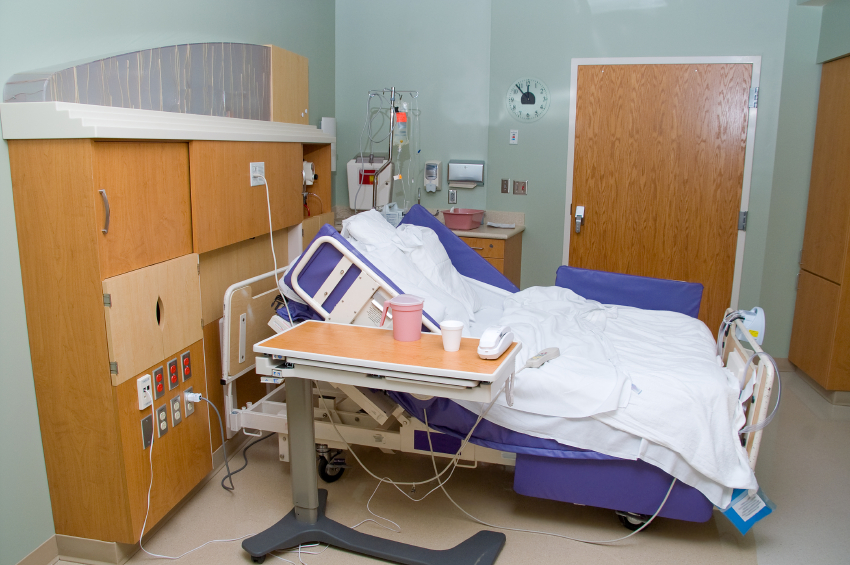You enter a patient’s room, begin a conversation, and then hear it. It may be from your patient’s machine, or the next bed; from the intravenous infusion or the telemetry monitor.
“Beep, beep, beep!”
What do you do? Do you:
A. Look into the situation yourself and work out what’s wrong?
B. Try to silence the alarm immediately?
C. Call the nurse to look into it?
D. Just let the machine keep beeping for now and carry on your conversation?
Which one you usually do probably depends on the clinical situation and what type of machine the alert is coming from. Obviously an emergency telemetry monitor alarm will provoke an immediate response. However, all hospital medicine doctors will be familiar with the above everyday scenario. More often than not, it’s a simple issue with the IV machine, such as an occluded line or an alert that the infusion has finished.
Interestingly, on occasions where people have shadowed me at work—from both clinical and non-clinical backgrounds—I’ve often heard them remark about all the background noise we hear from the machines on the floors. They also frequently ask me what certain alerts mean, and I must admit I’m not always sure without looking in detail at the machines! The volumes and types of alarms can make hospitals very noisy and confusing places. You wouldn’t have the same situation say on an airplane, hearing alerts that aren’t immediately understood and addressed by the pilot or cabin crew. Quite simply, there are far too many background alarms in the hospital environment. In fact, this phenomenon of “alarm fatigue” probably affects hospital medicine doctors more than any other specialty, because we spend the most time on the hospital floors.
And even though most of us have just accepted it as the norm of being in a hospital environment, the issue is finally getting the attention it deserves. The data is truly alarming (no pun intended). One national survey from earlier this year showed that 19 of 20 hospitals ranked alarm fatigue as a top patient safety concern. Statistics frequently cite the number of alarms at up to several hundred per day for some patients. There have even been some well-documented cases in the media of harm resulting to patients when alerts are ignored. As a result of this increased awareness, the Joint Commission recently rated the problem as a National Patient Safety Goal and is requiring hospitals to take steps to address the issue.
It’s easy sometimes for physicians to think about the alarm as a “nurses problem,” but it really isn’t. The issue requires high level thought, because who decides what is or isn’t a necessary alert and is it right that the nurse is typically responsible for adjusting the alarm settings?
Aside from the safety issue, there’s also another elephant in the room. How often have you walked in to see a patient and heard them immediately complain about the fact that their machine has been beeping for a long time and it’s been bothering them? The nurse may have understandably been busy with something else and not gotten to it yet. It can be a big barrier to patient satisfaction and allowing our patients to get a decent rest.
In terms of dealing with the alarm fatigue problem, there are a number of potential solutions. Some institutions such as Boston Medical Center have successfully led initiatives by changing the settings of alert systems, such as those related to non-emergent bradycardia. In the future, different machines could even be designed, quieter for non-urgent alerts, or utilizing built-in systems that automatically page the nurse instead with certain issues such as an occluded IV line. The final option is to just keep the status quo, accepting that hospitals are places that must always have background alarms because of the nature of the work.
There’s no easy answer, but do give it some more thought next time you’re with a patient and hear that beeping…
 Suneel Dhand is a physician, author, speaker and healthcare consultant. He has experience in a number of different healthcare environments, having practiced medicine up and down the East coast and also internationally. Suneel is the Founder & Director of MangoWell, an organization and consulting service that helps hospitals and healthcare professionals improve the quality of hospital care, deliver a better patient experience, and optimize healthcare information technology. Contact Suneel at: suneeldhand@mangowell.com
Suneel Dhand is a physician, author, speaker and healthcare consultant. He has experience in a number of different healthcare environments, having practiced medicine up and down the East coast and also internationally. Suneel is the Founder & Director of MangoWell, an organization and consulting service that helps hospitals and healthcare professionals improve the quality of hospital care, deliver a better patient experience, and optimize healthcare information technology. Contact Suneel at: suneeldhand@mangowell.com
Also visit Suneel’s blog at: www.HealthcareImprove.com


